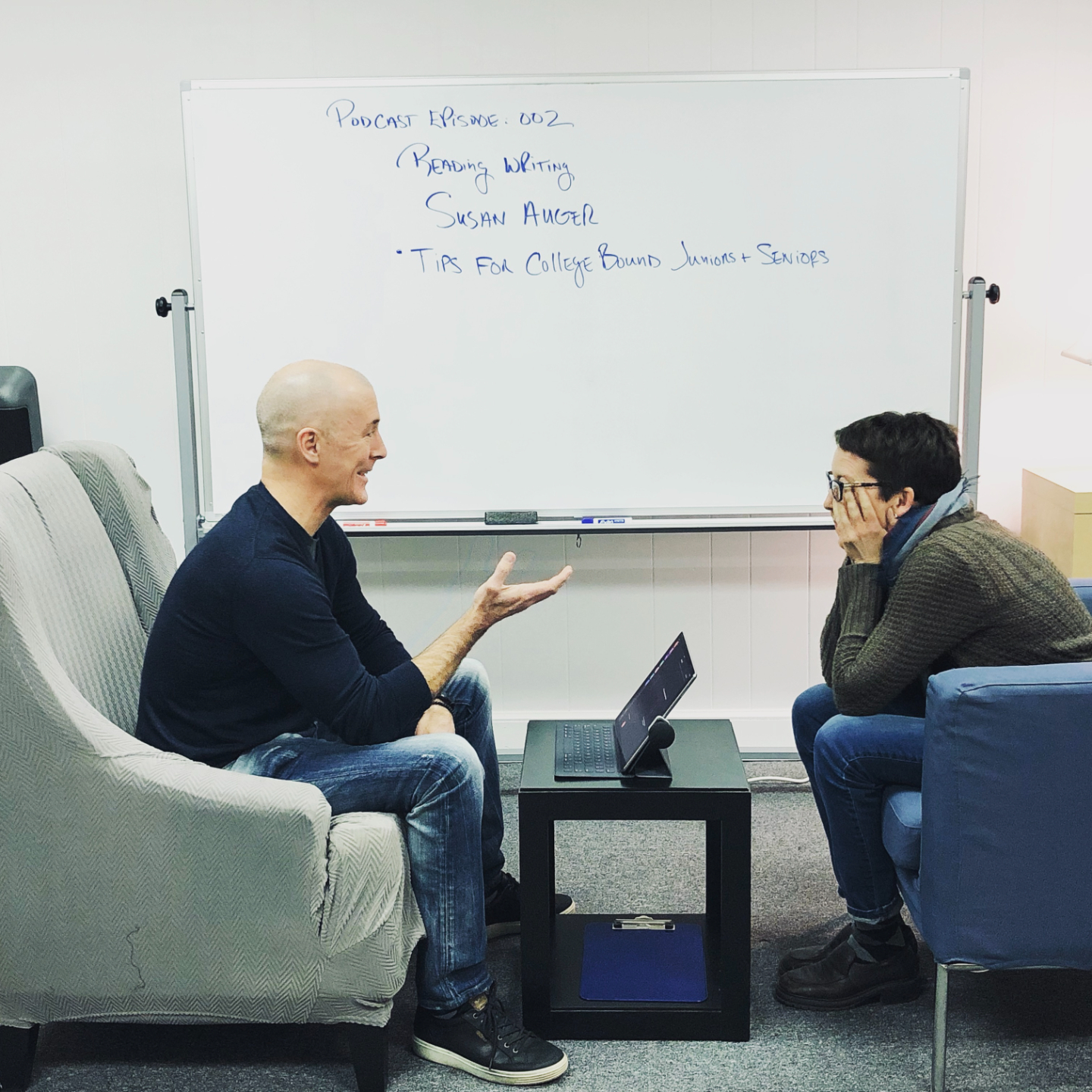Self-Awareness: The Critical Skill Your Student Needs for College Success
Aug 18, 2025
As the fall semester approaches, many families are consumed with the logistics of move-in: packing, shopping, and last-minute planning. But while dorm essentials and course schedules are important, there’s a skill far more critical to your student’s success than a perfectly stocked desk drawer: Self-awareness.
After 20+ years working with thousands of high school and college students, I’ve seen this pattern clearly: students who develop strong self-awareness are better equipped to adjust to college, manage stress, build relationships, and succeed academically.
Why Self-Awareness Matters in College
College is a time of enormous growth. Students are suddenly navigating independence, social pressures, academic challenges, and lifestyle decisions that directly affect their mental health. Self-awareness is a foundational emotional intelligence (EI) skill that allows them to:
- Recognize their stress signals before they escalate into bigger problems
- Adjust their habits around sleep, study, and social life to maintain balance
- Understand how their behavior impacts others—critical for roommates, professors, and peers
- Reflect before reacting, which can prevent social, academic, or even disciplinary consequences
Put simply: self-awareness is the starting point for resilience. Without it, students are more likely to stumble when challenges arise.
A Teachable Moment
A few years ago, I interviewed a young professional for a marketing project. He had strong credentials and a great first impression. But when I let him know I had selected another candidate, his response revealed arrogance, immaturity, and a lack of professionalism that immediately disqualified him from future opportunities.
This example underscores a powerful truth: how we respond in moments of disappointment says a lot about our self-awareness. For college students, these “moments” will happen regularly: missed grades, conflicts with roommates, stress from balancing responsibilities. Helping them recognize and regulate their responses is vital.
3 Ways Parents Can Encourage Self-Awareness Before Move-In
- Ask Reflective Questions, Not Just Practical Ones
Instead of focusing only on logistics (“Do you have your shower caddy?”), ask:
- “How do you usually know when you’re stressed?”
- “What helps you recover after a tough day?”
- “What do you want your roommates and professors to know about how you work best?”
These questions build insight and normalize reflection.
- Encourage Curiosity Over Control
When a challenge arises, avoid jumping straight into problem-solving. Instead, say:
- “What do you notice about how you’re handling this?”
- “How do you think this might come across to others?”
- “What’s one adjustment you could try?”
This approach helps your student learn to navigate situations with awareness, rather than expecting you to fix them.
- Model Self-Awareness at Home
Share your own strategies:
- “I’ve noticed I get more irritable when I don’t sleep well, so I’ve been trying to get to bed earlier.”
- “I had a stressful meeting today, and I realized I needed a walk before I could really talk it out.”
Your openness demonstrates that self-awareness is a lifelong skill, not just a college survival tactic.
Strategies for Students to Practice Now
- Pause Before Reacting: Encourage your student to take 24 hours before sending an email, text, or post when they’re upset.
- Journal or Reflect: Writing down daily highs and lows helps students identify patterns in mood, stress, and energy.
- Seek Feedback: Remind your student that listening to how others experience them (roommates, teammates, professors) is not a threat, it’s data for growth.
- Build a Routine: Sleep, exercise, and nutrition directly affect self-awareness. A well-rested, fueled student is far more likely to recognize stress before it spirals.
Final Thought: Your student’s ability to adjust to college life depends less on whether they’ve memorized their class schedule and more on whether they can understand themselves: their triggers, habits, strengths, and impact on others.
As you prepare for move-in, consider how you can support your student in developing this skill. Self-awareness isn’t just about surviving college, it’s about developing a critical emotional intelligence (EI) skill and preparing for life.
Encourage reflection. Model it yourself. And remind your student that self-awareness is their most valuable tool for mental health, relationships, and long-term success.
Want to keep the conversation going all year long?
Subscribe to the Mental Health University Podcast —hosted by Dr. Joel Ingersoll for practical guidance on college mental health, academic performance, motivation, resilience, and more.
Whether you’re a student or a parent, each episode delivers expert insights to help navigate the real-world challenges of college life.
Available on Spotify, Apple Podcasts, and all major platforms.
Parents, if you’re losing sleep watching your student spiral, you’re not alone.
We help students rebuild from failure fast while giving parents peace of mind and proven results. Learn more: Dr. Joel's College BounceBack Coaching
Stay connected with news and updates!
Join our mailing list to receive the latest news and updates from our team.
Don't worry, your information will not be shared.
We hate SPAM. We will never sell your information, for any reason.

